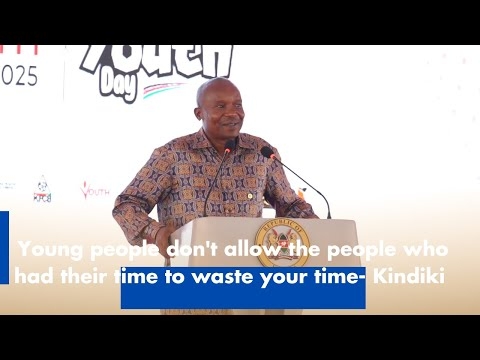

Following the reconstitution of the Independent Electoral and Boundaries Commission (IEBC), an issue that had remained pending for months, the recall of Members of Parliament has resurfaced.
The renewed momentum stems from MPs’ support for the contentious Finance Bill, 2024, which triggered nationwide protests, particularly among the youth.
The recall process is anchored in Article 104 of the Constitution and the Elections Act, 2011.
It allows citizens to initiate the removal of an MP, Senator, or MCA only after two years from their election date, and not within the final 12 months before the next general election.
Grounds for recall include violations of leadership and integrity standards, misuse of public resources, or conviction for electoral offences.
While reports suggested that more MPs were being targeted, the IEBC clarified that only four petitions had been formally received.
Speaking during a press briefing on July 19 in Mombasa, IEBC chairperson Erastus Edung Ethekon said the commission was reviewing the petitions and would assess each on its merits.
“We currently have roughly four petitions. We will look at them once we go back to the office,” said Ethekon.
He assured the public that all processes would be handled in line with legal and constitutional provisions.
“We will receive those petitions, examine them, and then respond accordingly,” he added.
In a public notice issued on July 30, the IEBC stated that despite Article 104 of the Constitution providing for the recall of MPs and Senators, the absence of enabling legislation prevents the commission from facilitating the process.
The commission affirmed its support for the electorate’s right to hold leaders accountable but noted that no legal framework currently exists for the recall of National Assembly and Senate members.
“The commission stands ready to facilitate the process without fear, favour, or hindrance,” said Ethekon.
He explained that only Members of County Assemblies (MCAs) can currently be recalled through an established legal mechanism, and that the commission is processing petitions that meet statutory requirements for MCAs.
“But for MPs and Senators, the situation is different,” he said.
Ethekon attributed the impasse to a 2017 High Court decision in the case of Katiba Institute and Transform Empowerment for Action Initiative (TEAM) v Attorney General & Another, which struck down key sections of the Elections Act, 2011.
The court ruled that the provisions guiding the recall of MPs were discriminatory and unconstitutional.
Although Parliament later amended the County Governments Act in 2020 to establish a recall framework for MCAs, it did not enact corresponding legislation for MPs and Senators.
As a result, Ethekon said the IEBC is unable to act on the four petitions recently submitted regarding MPs.
In response, six petitioners have moved to the High Court in Nairobi to challenge the IEBC’s position.
They argue that the commission’s inaction violates their constitutional rights and undermines public accountability.
The petitioners further contend that Parliament, particularly the National Assembly, has failed to fulfil its mandate under Article 104(2), which requires the enactment of legislation to guide the recall process.
They argue that the legislative gap shields elected leaders from accountability and infringes on fundamental rights under Articles 1, 27, 38, and 47 of the Constitution.
“Following the 2017 Katiba judgment, Parliament amended the County Governments Act, 2012, in 2020 to provide a workable recall mechanism for MCAs but failed to enact corresponding legislation for MPs, creating a legal vacuum,” the petition reads.
The petitioners maintain that the right to recall is self-executing and does not require additional legislation to be enforced.
They are asking the court to compel the IEBC to accept and process recall petitions using existing provisions in the Elections Act and the recall model under the County Governments Act.
“The petitioner contends that the IEBC’s position violates the Constitution by failing to facilitate the electorate’s sovereign right to recall MPs,” the petition states.
They also seek an order of mandamus to compel Parliament to enact the necessary recall legislation within 90 days and a conservatory order restraining the IEBC from declining to process recall petitions pending the determination of the case or the enactment of enabling legislation.












